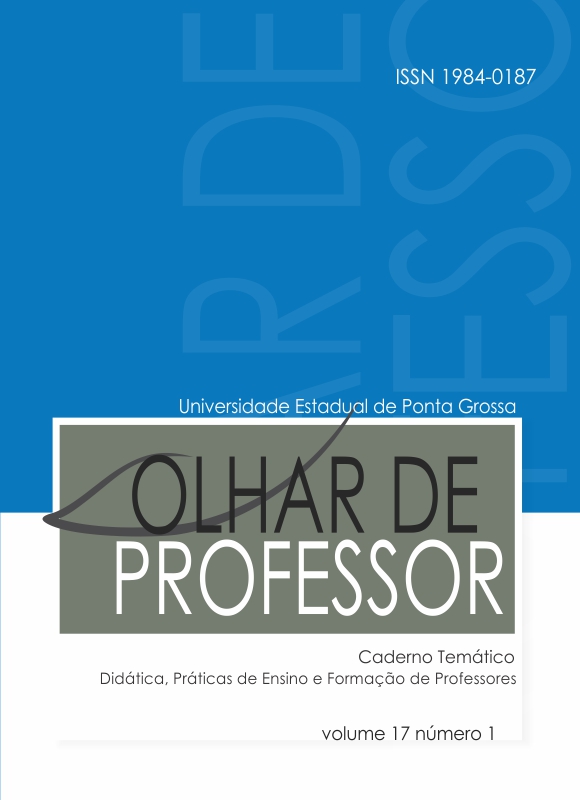APRENDIZAGEM DA PRÁTICA DE ENSINO POR PARTICIPAÇÃO NA ESCOLA: CONTRIBUIÇÕES DO ESTÁGIO SUPERVISIONADO
Main Article Content
Abstract
A proposta deste artigo é mostrar que, por meio do conceito de Cognição Situada, podem existir parâmetros para a aprendizagem da prática de ensino docente, desde a formação inicial de professores. Características e consequências dessa aprendizagem serão apresentadas através dos resultados de uma pesquisa que objetivou verificar a contribuição para a elaboração de saberes docentes, a partir de uma proposta de Estágio Supervisionado que propôs a superação da sequência observação-participação-regência. A pesquisa foi realizada com licenciandos do 4º ano do curso de Matemática de uma universidade paulista pública. Quando princípios da Cognição Situada foram utilizados para o desenvolvimento do Estágio Supervisionado, além da base de conhecimento para a docência apontada por Shulman (1986), os resultados apontaram para a necessidade de consideração do saber atitudinal-afetivo como também um saber necessário à docência e consequente efetiva prática de ensino.
Downloads
Article Details
Authors who publish in this journal agree with the following terms:
a) Authors keep the copyrights and concede the right of its first publication to the magazine. The work piece must be simultaneously licensed on the Creative Commons Attribution License which allows the paper sharing, and preserves both the author identity and the right of first publication to this magazine.
b) Authors are authorized to assume additional contracts separately, to not-exclusively distribution of the paper version published in this magazine (e.g.: publish in institutional repository or as a book chapter), with the author identity recognition and its first publication in this magazine.
c) Authors are permitted and stimulated to publish and distribute their papers online (e.g.: in institutional repository or on their personal webpage), considering it can generate productive alterations, as well as increase the impact and the quotations of the published paper.
d) This journal provides public access to all its content, as this allows a greater visibility and reach of published articles and reviews. For more information on this approach, visit the Public Knowledge Project, a project that developed this system to improve the academic and public quality of the research, distributing OJS as well as other software to support the publication system of public access to academic sources.
e) The names and e-mail addresses on this site will be used exclusively for the purposes of the journal and are not available for other purposes.

This work is licensed under a Creative Commons Attribution 4.0 International License.





